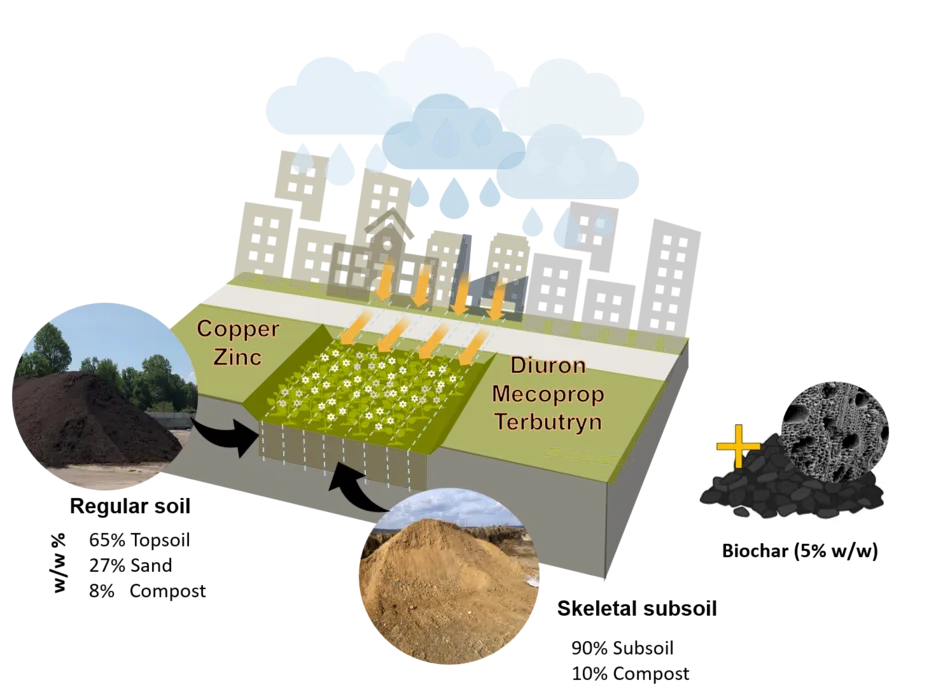Implementing biochar in bioswales for stormwater treatment
Urban stormwater is a significant pollutant source that impairs the quality of water bodies and can affect human health and ecosystems. Implementing green infrastructure such as bioswales for urban stormwater management is a meaningful strategy for addressing this challenge, as it can provide various ecosystem services. However, although conventional bioswales can effectively remove sediments and particulate-bound pollutants, they can fail to remove dissolved pollutants in a reliable manner. This project aims to improve the dissolved pollutant removal in bioswales by studying the implementation of biochar. The main goal is to achieve a better understanding of the possible improvements in dissolved pollutant removal and long-term retention in biochar-amended bioswales, focusing on biocides and heavy metals. Biochar is being tested both in isolation and in combination with two different soils.
Preliminary results from laboratory-scale adsorption experiments with synthetic stormwater show that high-temperature (850°C) biochar from mixed forest residues has a removal of heavy metals and biocides comparable to granular activated carbon (GAC). In both tested soils, biochar can significantly enhance the removal of heavy metals (>80%) and biocides (>90%). However, its overall performance depends on the soil type. Small-scale permeability tests have shown that biochar can impact the soil’s hydraulic conductivity, but the values still comply with the German regulations at the tested amendment rates. Currently, column experiments with biochar-amended soils under varying rain intensities and dry periods are being conducted.
This research is part of the interdisciplinary Research Training Group in Urban Green Infrastructure at the Technical University of Munich.

| Project Leader | Prof. Dr. Brigitte Helmreich |
| Researcher | Natalie Páez-Curtidor, M.Sc. |
| Funding | German Research Foundation (DFG) |